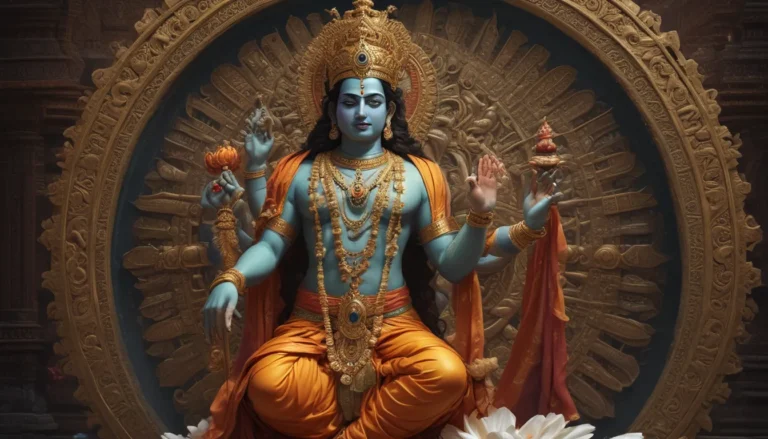The images in our articles may not match the content exactly. They are used to grab your attention, not to show the exact details in the text. The images complement the text but do not replace it.
Ramadan is an essential pillar of Islam, a sacred time of reflection, fasting, prayer, and community for Muslims around the world. This article serves as a comprehensive guide, offering valuable insights into the traditions, practices, and significance of this holy month. Whether you are a student, a curious individual exploring different cultures, or seeking to understand and respect the beliefs and customs of your Muslim friends, colleagues, or neighbors, this article aims to enrich your knowledge of Ramadan.
A Month of Fasting: Understanding the Practice of “Sawm”
At the core of Ramadan is the practice of fasting, known as “Sawm,” where Muslims abstain from food, drink, negative habits, thoughts, and actions from dawn until sunset. This fasting serves as a means of purification for the mind, body, and soul, allowing practitioners to focus on spiritual growth and devotion.
The Five Pillars of Islam: Ramadan’s Central Role
Ramadan holds a central place in Islam as one of the Five Pillars, fundamental acts of worship that every able-bodied Muslim must observe. Alongside the profession of faith (Shahada), prayer (Salat), almsgiving (Zakat), and pilgrimage to Mecca (Hajj), fasting during Ramadan is a cornerstone of the Islamic faith.
Commemorating the Revelation of the Quran: The Significance of Ramadan
Ramadan marks the month in which the Quran, the holy book of Islam, was revealed to the Prophet Muhammad by the angel Gabriel. The Night of Power, also known as “Laylat al-Qadr,” falls within the last ten nights of Ramadan and holds special significance for Muslims.
Determined by the Lunar Calendar: The Shifting Start of Ramadan
The Islamic calendar is lunar, with the start of Ramadan shifting approximately 11 days each year in the Gregorian calendar. Local religious authorities confirm the beginning of Ramadan upon sighting the new moon, marking the commencement of this sacred month.
Pre-Dawn and Sunset Traditions: Suhoor and Iftar
Before dawn, Muslims partake in a pre-fast meal known as Suhoor. The fast is broken at sunset with a meal called Iftar, often starting with dates following the example of Prophet Muhammad. These moments of sustenance bookend the daily fasting period during Ramadan.
Increased Devotion: Prayer and Recitation during Ramadan
Throughout Ramadan, Muslims engage in heightened prayer and recitation of the Quran. Special prayers known as Tarawih are conducted in mosques every night, where sections of the Quran are recited. By the end of Ramadan, devout Muslims complete the recitation of the entire Quran.
Zakat and Charity: Giving Back During Ramadan
An essential aspect of Ramadan is the encouragement for Muslims to give generously to charity through Zakat. This act of giving serves to purify one’s wealth and assist those in need. Many choose to fulfill their annual Zakat obligations during Ramadan to reap the promised spiritual rewards.
Eid ul-Fitr: Celebrating the End of Ramadan
The culmination of Ramadan is marked by the festival of Eid ul-Fitr, a time of communal prayers, feasting, and gift-giving. This joyous occasion signifies the end of the fasting period and brings together Muslims in celebration and gratitude.
Fasting Exceptions: Circumstances Exempt from Fasting
Islam recognizes certain circumstances in which individuals are exempt from fasting, including the elderly, the sick, pregnant and nursing women, menstruating women, and travelers. These exceptions ensure the well-being of individuals while upholding the spirit of Ramadan.
Reflection and Community: Bonds Formed During Ramadan
Ramadan serves as a time for deep reflection, heightened devotion, and community bonding. Many Muslims invite neighbors, friends, and family to break fast together, fostering a sense of unity and shared experience. These gatherings often involve shared meals, prayers, and charitable endeavors.
Spiritual Rewards: The Benefits of Fasting in Ramadan
Muslims believe that the spiritual rewards for good deeds are multiplied during Ramadan. Fasting is viewed as a form of worship that brings practitioners closer to God, fostering self-discipline, spiritual growth, and empathy towards those less fortunate.
Conclusion: Embracing the Spirit of Ramadan
In conclusion, Ramadan stands as a captivating and profoundly spiritual month for Muslims worldwide. It offers a time for internal growth, religious introspection, and communal unity. The shared experiences of fasting, prayer, and charity create a deep sense of connection among Muslims globally. Whether you seek knowledge for personal interest, academic exploration, or cultural understanding, these insights into Ramadan aim to broaden your appreciation for this sacred time.
Did You Find This Guide Helpful?
Our dedication to providing reliable and engaging content is the cornerstone of our mission. Each fact and insight shared on our platform is contributed by individuals like you, offering a diverse array of perspectives and information. Our diligent editors meticulously review each submission to uphold the highest standards of accuracy and credibility. Trust in our commitment to delivering quality content as you embark on a journey of discovery and learning with us.






